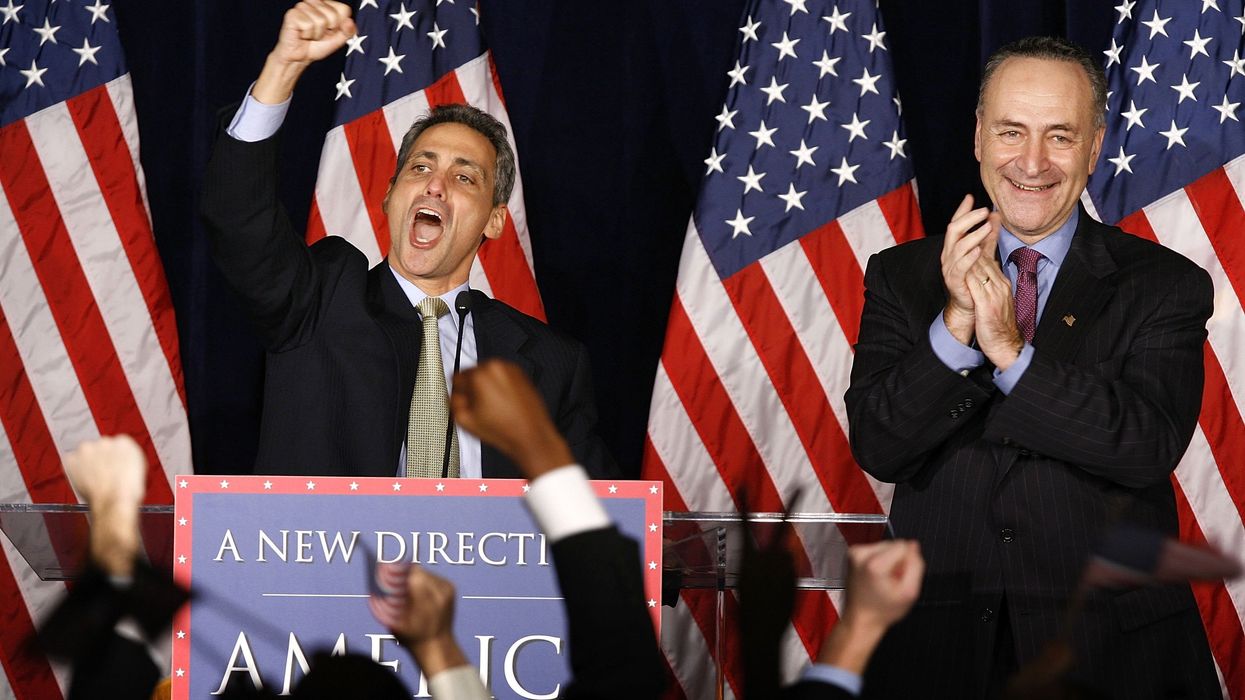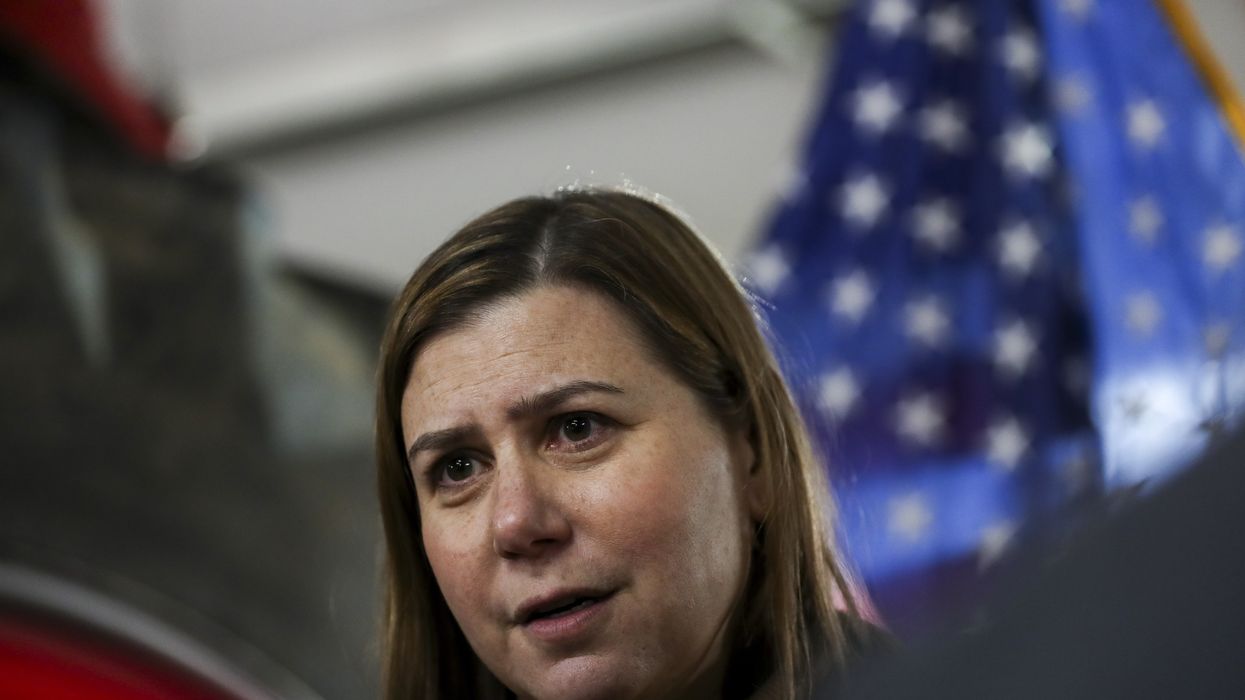Did Centrism Help Democrats Win in Virginia and New Jersey? Or Was It ICE's Brutality?
With the Republicans becoming ever more authoritarian, centrism moves the entire political spectrum to the right.
The Democratic centrists are at it again, looking to show that the road to success is paved with middle-of-the-road candidates like Mikie Sherrill and Abigail Spanberger. Zohran Mamdani’s victory in New York is being written off as the fluke product of a deep blue city, while the newly elected governors are hailed as the very model of successful centrist Democratic messaging.
Rahm Emanual, former Obama staffer, Mayor of Chicago and Wall Street advisor said:
If you are trying to win national campaigns that bring in a whole slew of swing voters, is the test Park Slope, Brooklyn — or what happens in New Jersey and Virginia? I am less interested in the Upper West Side and more interested in the Upper Peninsula. That is how you win.
Others argue that in substance Mamdani’s platform is not radically different from those of the moderate governors. Ry Rivard and Madison Fernandez wrote in Politico:
For all their ideological differences, Zohran Mamdani, Mikie Sherrill and Abigail Spanberger found a shared language that aims at the heart of President Donald Trump’s populism: the high cost of everyday life.
Their wins suggest a recalibration of Democratic politics — from moral crusades to kitchen-table math.
Affordability is the new mantra, to be sure, but the moderates are not ready to take on the fundamental causes of unaffordability. Those require you to take on the Democratic donor class. To truly make America affordable again, you need to slap major controls on Wall Street-financed oligopolies and rein in the wealth extraction machines that are private equity and hedge funds. Since the Democrats are not about to bite the donors’ hands that feed them, moderation is their best and only policy.
But maybe that timid moderation isn’t the reason the Dems won in this abbreviated cycle. Maybe the moderates won for a completely different reason that has little or nothing to do with affordability, like the fact that ICE has been coming after Hispanic immigrants, often with extreme violence, often arresting citizens and jailing them without cause. This everyday cruelty is ripping people from their communities and families across the country. It’s ugly and lots of voters of all persuasions don’t like it.
If that’s the case, I would think we would see a big shift in Hispanic votes from Trump in 2024 to Sherrill and Spanberger in 2025. And as best I can tell, that’s exactly what happened.
About 16 percent of all eligible voters in New Jersey are Hispanic. The two counties with the largest concentration are Hudson and Passaic. In Hudson County, the Hispanic vote shifted away from Trump by 23 percent, while it shifted away by 18 percent in Passaic County. “Sherrill carried Latino men and women alike, and even flipped 18% of Latino Trump voters,” reported CBS News.
While only 9 percent of Virginians are Hispanic, the two counties with the highest Hispanic concentrations (over 40 percent) are Manassas and Manassas Park. Although these are small counties, in Manassas Spanberger picked up 9 percent more votes than Harris did in 2024, while also picking up 13 percent more in Manassas Park.
It’s not hard to understand why Hispanic voters might be turning against Trump and his ICE machine. Many Hispanic citizens live with some undocumented immigrants, often family members. And Hispanic citizens have friends, neighbors, and co-workers who are Hispanic, all of whom know they might get stopped by masked members of ICE based on how they speak or the way they look or during a raid of their workplaces. Trump promised to deport serious criminals, but his administration has pivoted to targeting anyone who might be in the US without papers based on how they look. That includes many hardworking immigrant citizens.
The latest Kaiser Family Fund/New York Times poll confirms these fears:
“One in five immigrants say they personally know someone who has been arrested, detained or deported since January. Four in ten worry they or a family member could face such action. Many immigrants, including naturalized citizens and those who are lawfully present, say they feel less safe, are avoiding activities outside their home, and no longer view the U.S. as a good destination for immigrants.”
The Democrats would be wise and righteous to come to the defense of these working people, rather than dance the moderate two-step (“let’s work on affordability but leave the wealthy alone”).
As we’ve noted repeatedly, a strong majority of voters want a path to citizenship for undocumented workers. Our Rust Belt survey showed that 63 percent of the voters of Michigan, Ohio, Pennsylvania, and Wisconsin support granting citizenship to undocumented workers who have been here three years, paid their taxes, and have not committed a felony crime. That support includes 36 percent of 2024 Trump voters.
Mamdani openly supports a path to citizenship, but do the new governors?
Instead of giving marathon speeches and shutting down the government, Democrats would make a powerful statement if they went out into the streets to protect immigrants from deportation. What would the public’s reaction be if every Democratic member of Congress got arrested standing up for due process and immigrants at ICE raids and facilities? Their mugshots would be a badge of honor, noticed by a public hungry for human solutions to real problems, not political terror. They would likely have more impact than counting on “affordability centrism” to stop Trump and his billionaire friends.
With the Republicans becoming ever more authoritarian, centrism moves the entire political spectrum to the right. It is just an excuse for ducking the hard task of taking on the monied elites who are sucking wealth away from working people.
Jim Hightower, the old-school populist columnist who served as Texas Commissioner of Agriculture for eight years, always had disdain for political centrists. As he pointed out many moons ago, “There’s nothing in the middle of the road but yellow stripes and dead armadillos.”


